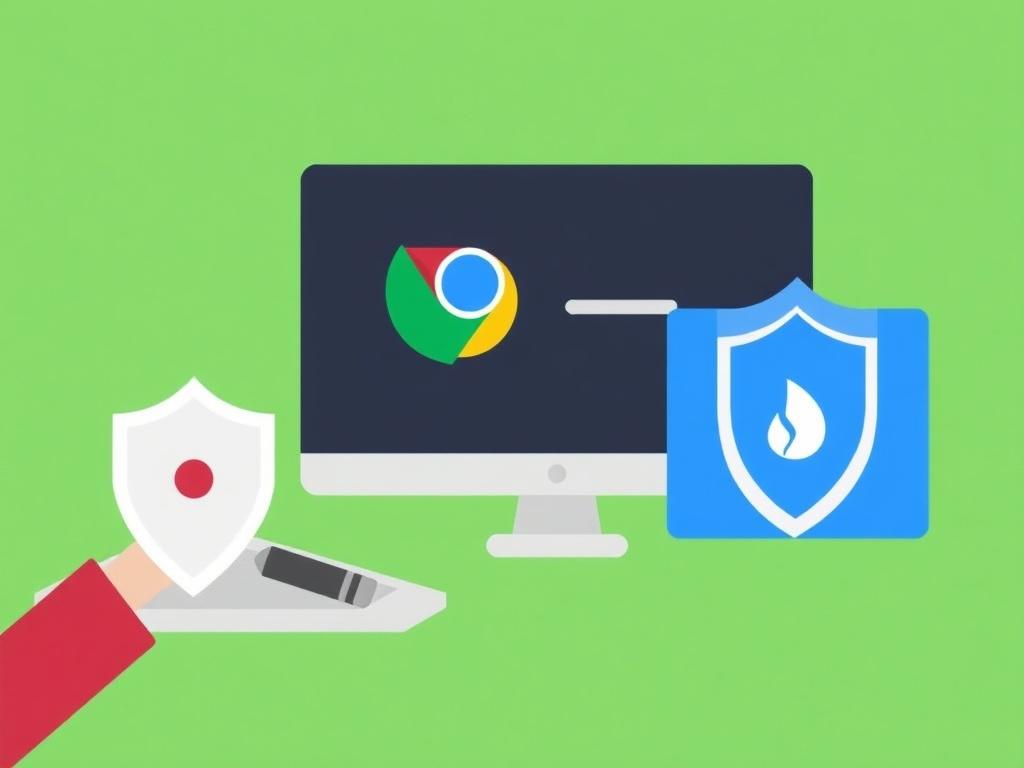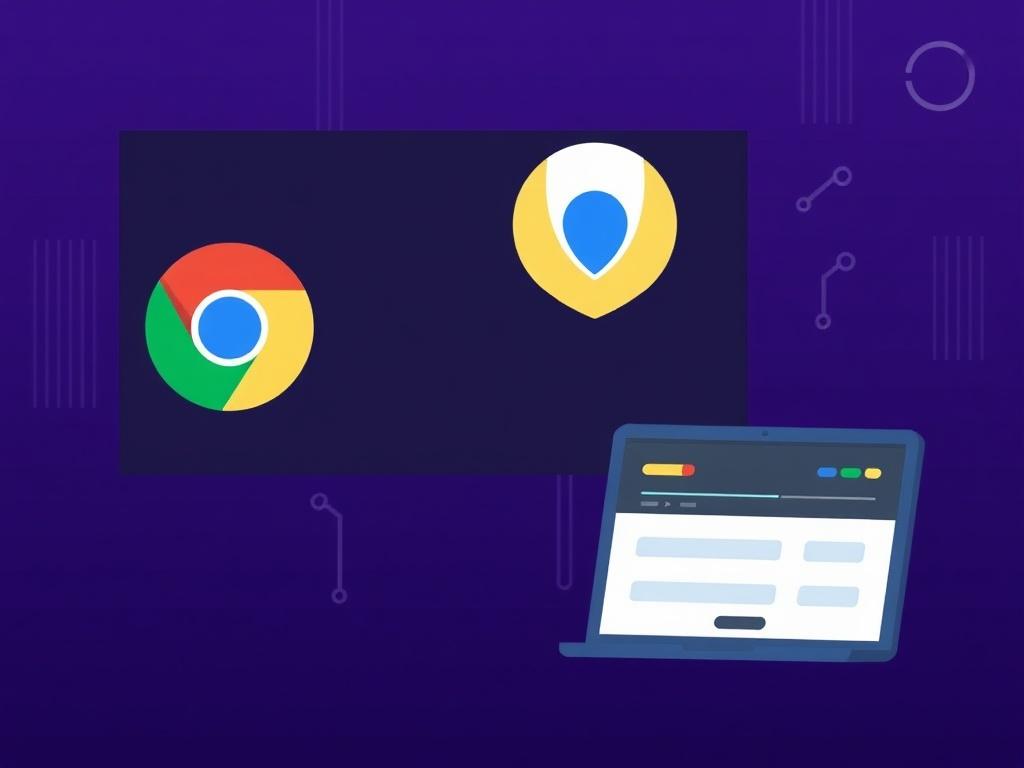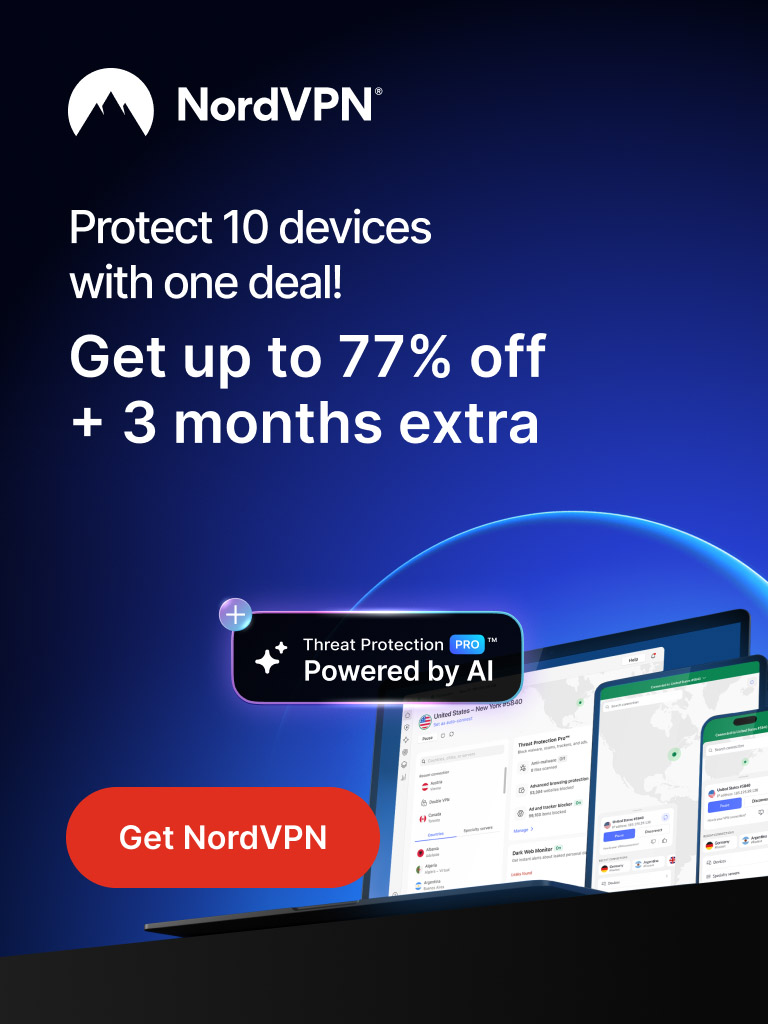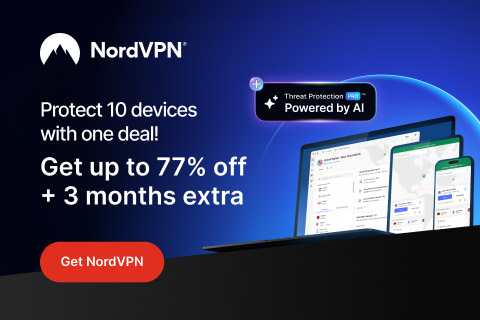Stay Private. Stay Secure. Stay Free.
Trusted by millions worldwide – protect your online life with #1 VPN
- ⚡ Blazing-fast speed on every server
- 🔒 Military-grade encryption & protection
- 🌍 Access content globally without limits
- 📱 Up to 10 devices with one account
If you use Chrome every day for work, shopping, streaming, or just reading the news, you’ve probably wondered how to make your browsing safer without a lot of fuss. That’s where a VPN extension for Chrome browser comes in — a lightweight, click-to-enable tool that can mask your location, unlock geo-restricted content, and add a layer of privacy to your web activity. But with so many choices, from full-service paid providers to a dozen free addons promising the moon, figuring out which one is truly the best chrome vpn can feel overwhelming.
In this long-form guide I’ll walk you through what Chrome VPN extensions actually do, how they differ from full desktop VPN clients, which top vpn extension chrome options are worth your time, and how to choose a chrome vpn secure extension that balances privacy, performance, and cost. I’ll also show you how to install and troubleshoot extensions step-by-step, compare free vs paid free vpn chrome addon choices, and give you practical recommendations for streaming, travel, and working on public Wi‑Fi. Read on — I’ll keep it conversational and practical so you can make a confident pick for your browsing needs.
Throughout this piece I’ll use real examples and an easy-to-scan table of the top choices. Whether you want a free vpn chrome addon to unblock a site or the most secure chrome vpn secure extension you can get, you’ll finish this article knowing what to look for and how to install it without fuss.
Why You Might Want a VPN Extension for Chrome Browser
Think of a vpn extension for chrome browser as a lightweight mask for your browser traffic. Unlike a full desktop VPN app that redirects all network traffic on your device, the extension usually secures just what passes through Chrome. That’s perfect if you want privacy while browsing, need to spoof your location for streaming, or want to avoid targeted ads and trackers while keeping other apps on your computer untouched.
For many people, the extension is the sweet spot: it’s quick to install, simple to toggle on or off, and does exactly what you expect without changing system settings. If your main goal is safer browsing on shared Wi‑Fi at a café, a chrome vpn secure extension can drastically reduce the risk of casual snooping or session hijacking. And if you travel and need to access services that are geo-locked to your home country, the right extension can be a game-changer.
Of course, there are trade-offs. Browser extensions only protect traffic inside the browser, so apps like games or desktop email clients won’t be routed through the VPN. Also, extension-level encryption and routing setups vary by provider, so not every vpn extension for chrome browser offers the same level of anonymity as a full VPN. That’s why choosing the best chrome vpn requires a mix of technical checks and practical testing.
How VPN Extensions Work and How They Differ from Full VPN Apps
At a basic level, vpn extension for chrome browser acts as a browser-level proxy. When enabled, the extension routes Chrome’s web requests through a remote server run by the VPN provider. That gives you a different IP address, potentially a different country, and encrypts your browser traffic between your device and the VPN server. This breaks the direct link between the websites you visit and your real network location.
But there are important differences to understand. A full desktop VPN app usually creates a system-level tunnel, securing traffic from every app on your device — including messaging apps, online games, and background services. A Chrome extension typically only secures browser traffic. That’s great for minimizing battery and CPU usage, and it avoids breaking services that don’t like VPNs, but it won’t protect non-browser data.
Another nuance: some Chrome extensions are simply proxies rather than true VPN endpoints. They might route traffic through the provider’s servers without offering the same encryption or leak protections (like DNS leak protection or a kill switch) found in full VPN apps. That’s why you’ll often see extensions labeled as a “chrome vpn secure extension” versus a lightweight “web proxy.” Prioritize extensions from reputable VPN services that explicitly support encryption, leak protection, and strict no-logs policies if privacy is your main concern.
Technical Features to Look For in a VPN Extension

When you evaluate a vpn extension for chrome browser, focus on three technical pillars: encryption, leak protection, and server choice. Strong encryption (for example, AES-256 for data in transit) keeps your browsing content scrambled so eavesdroppers can’t read it. Leak protection prevents WebRTC, DNS, or IPv6 requests from bypassing the tunnel and revealing your real IP address. And a wide server choice gives you flexibility for speed and location-based access.
Also check whether the provider integrates the extension with the desktop VPN client — some extensions are just remote controls that toggle the main app, while others operate entirely inside the browser. If your goal is maximum privacy across all apps, a combined approach (desktop client plus browser extension) might be best. If you only want quick web privacy and geo-unblocking, a standalone chrome vpn secure extension can be perfectly adequate.
Finally, pay attention to permissions the extension requests. A good vpn extension will ask for permissions relevant to routing and modifying web requests; it shouldn’t ask for unnecessary access to your bookmarks or personal data. If an extension seems to request excessive permissions, treat that as a red flag.
Top VPN Extension Chrome Options: A Comparative Table
Below is a practical table that summarizes some of the top vpn extension chrome choices. I’ve included well-known paid providers alongside reliable free vpn chrome addon options. This is a starting point — I’ll dig into strengths, weaknesses, and who each one is best for shortly.
| Provider | Free Option? | Best For | Pros | Cons |
|---|---|---|---|---|
| ExpressVPN (extension) | No (7-day trial on mobile) | Streaming & consistent speed | Fast servers, strong security, easy interface | Paid-only, extension is a controller for the desktop app |
| NordVPN (extension) | No (trial sometimes available) | Privacy-conscious users, large server network | Strong privacy features, ad blocking, good speeds | Paid subscription required for full features |
| Surfshark (extension) | No | Unlimited devices & budget users | Good value, unlimited connections, adblocker | Occasional server crowding in peak times |
| Windscribe (extension) | Yes (free plan with monthly data cap) | Free vpn chrome addon with decent privacy | Generous free tier, good tracker blocking | Free speed/data limits, fewer premium locations |
| Proton VPN (extension) | Yes (limited free plan) | Privacy-first free vpn chrome addon | No data cap on free plan, strong privacy reputation | Limited free server locations, mixed speeds |
| Hotspot Shield (extension) | Yes (limited free plan) | Quick set-up and casual browsing | Fast on short bursts, easy to use | Free plan shows ads and uses limited servers |
| TunnelBear (extension) | Yes (free limited data) | Beginners who want a friendly interface | Simple UI, transparent privacy policy | Small free data allowance, not for heavy use |
That table gives you an at-a-glance sense of options. Remember that some extensions — like ExpressVPN — function primarily as a browser-based controller for a required desktop VPN application, while others (like Windscribe and Proton) offer standalone chrome vpn secure extension behavior that protects only browser traffic.
Free VPN Chrome Addons: What to Expect
If budget is your concern, free vpn chrome addon options are tempting. Free services can be great for occasional use: checking geo-restricted content, avoiding local price discrimination, or masking your IP on public Wi‑Fi for light browsing. Providers like Windscribe and Proton offer genuinely useful free tiers with transparent policies, making them decent choices for cautious users.
However, free services often impose limits: data caps, fewer server choices, slower speeds, and sometimes ads. Worse, some unknown free extensions have been caught collecting browsing data and selling it — exactly what you don’t want from a privacy tool. Always pick free addons from reputable providers with clear privacy policies and an established track record. When in doubt, check independent reviews and community feedback on the Chrome Web Store and tech review sites.
Choosing a Chrome VPN Secure Extension: Security Checklist
Not all extensions are created equal. If security is your priority, treat this checklist as your shopping list for the best chrome vpn:
- Strong encryption protocols and modern standards (e.g., AES-256, TLS-based tunnels).
- Clear statement about what the extension protects and whether it’s a proxy or a true VPN.
- Leak protection for WebRTC, DNS, and IPv6 to prevent accidental exposure of your IP.
- Strict no-logs policy audited by an independent third party (if possible).
- Minimal and reasonable extension permissions in the Chrome Web Store listing.
- A reputable provider with an established history and transparent privacy practices.
- Optional extras like ad/tracker blocking, malicious site protection, and a kill switch if you use the desktop app too.
Pay special attention to WebRTC leaks because Chrome can expose your local IP even with a proxy enabled unless the extension explicitly blocks WebRTC or you disable it in the browser settings. A chrome vpn secure extension should either have built-in protections or clearly document how to avoid leaks.
Lastly, check the company’s jurisdiction. Providers based in privacy-friendly countries tend to have fewer legal obligations to hand over logs, though a strict no-logs policy is ultimately more important than the country alone.
Privacy Policies and Transparency
Always read the privacy policy before installing a vpn extension for chrome browser. It should plainly state whether the provider logs IP addresses, timestamps, connection metadata, or browsing activity. Some VPNs log connection metadata to enforce abuse policies; others keep nothing. The best chrome vpn providers publish transparency reports or undergo audits to back up their claims.
Transparency also includes code audits and open-sourcing components where feasible. While not every provider can open-source everything, those that let independent auditors review their code and infrastructure are more trustworthy. If a free vpn chrome addon looks too vague about data collection, avoid it.
Performance, Speed, and Reliability
When people talk about the best chrome vpn, speed often leads the conversation. A VPN adds routing overhead and encryption work, so you’ll usually see some slowdown. How much depends on server load, server location, and the provider’s network quality. Premium providers invest in fast infrastructure and have many servers to avoid congestion, which is why they often outperform free alternatives.
Look for these performance indicators when comparing extensions: number of servers and locations, whether the extension supports optimized streaming servers, and whether they offer split tunneling or browser-only protection to keep overhead lower. Also test different servers — sometimes a nearby server in an adjacent country outperforms a distant one in the same region. The best chrome vpn experience often comes from trial and testing rather than just marketing claims.
If you care about latency for gaming or real-time apps, remember that most browser-based VPN extensions won’t help because games use UDP and other protocols that may not be routed through the extension. For those use cases, a desktop client or specialized routing is usually necessary.
How to Install and Use a VPN Extension for Chrome Browser
Installing a vpn extension for chrome browser is usually straightforward. Here’s a practical, step-by-step guide you can follow. These steps work for most reputable providers, but consult the provider’s documentation for provider-specific nuances.
- Open the Chrome Web Store and search for the provider’s official extension (verify publisher name to avoid impostors).
- Read the extension description and permissions. Confirm it’s the official extension from a reputable provider.
- Click “Add to Chrome” and follow prompts. Chrome might show permissions — accept only those relevant to the extension’s functionality.
- Create or sign into the provider account if required. Note that some extensions require a paid subscription to unlock full server lists.
- Choose a server or location, then click to enable the extension. Many extensions show a small icon in the toolbar as an on/off toggle.
- Test for leaks: use online tools to check your IP, DNS, and WebRTC to ensure your real address is hidden. If you see leaks, consult the extension’s settings to enable leak protection or disable WebRTC in Chrome.
- Turn off the extension when you don’t need it. Browser-based VPNs are easy to toggle and can be used only for specific tasks while leaving other traffic direct.
That’s it — within minutes you can be browsing from a different country or shielding your session on public Wi‑Fi. Keep the extension updated via the Chrome Web Store to receive security patches and feature improvements.
Use Cases: When a VPN Extension Makes Sense (and When It Doesn’t)
A vpn extension for chrome browser is ideal for a set of common tasks. If any of these sound like you, you’ll likely be satisfied with an extension:
- Streaming region-blocked content (movies, sports, or regional catalogs).
- Protecting your browser activity on public Wi‑Fi at cafes or airports.
- Avoiding localized pricing differences when shopping online.
- Testing how websites look from different countries during web development.
- Blocking trackers and ads while browsing (if the extension includes these features).
However, avoid relying solely on a browser extension in these situations:
- If you need system-wide protection across all apps and services — use a full desktop VPN.
- For online gaming or VoIP where UDP is required — desktop clients often handle this better.
- If you need the most rigorous anonymity available (Tor is more suited for extreme cases).
- If you’re in a high-risk environment where exposing even small metadata could be dangerous — use a multi-layer approach and audited providers.
Troubleshooting Common Problems with Chrome VPN Extensions
Even the best chrome vpn can run into hiccups. Here are common problems and quick fixes to get you back on track:
Problem: Extension won’t connect or frequently drops
Try switching to a different server location or restarting the extension. If that fails, clear Chrome’s cache or restart your browser. Check whether the provider has reported outages on their status page. If you use a free vpn chrome addon, server capacity limits might be why connections drop frequently; upgrading to a paid plan often improves reliability.
Problem: Websites still see my IP (WebRTC/DNS leaks)
Check the extension’s settings for a built-in leak protection toggle. If not available, you can disable WebRTC in Chrome settings or install WebRTC-blocking extensions. Use online leak-test sites to confirm the fix. If DNS requests leak, ensure the extension routes DNS traffic through the provider’s servers rather than your ISP.
Problem: Streaming service still blocks me
Streaming platforms actively block many VPN IPs. Try another server, preferably one labeled for streaming by the provider. Sometimes a provider’s dedicated streaming servers are better. If you rely heavily on streaming geo-unblocking, consider premium providers known for that use case and avoid shady free vpn chrome addon options that rarely succeed.
Problem: The extension asks for odd permissions
If an extension requests access beyond controlling web requests — like reading your bookmarks or accessing system files — treat it with suspicion. Remove it and find a reputable alternative. Always download extensions from the official Chrome Web Store and verify the developer’s identity.
Comparing Free VPN Chrome Addon vs Paid Extensions
Free vpn chrome addon options have a clear appeal: zero cost. They can be perfect for casual use. Paid extensions, however, usually offer better speed, more servers, fewer ads, stronger privacy guarantees, and polished customer support. Here’s a side-by-side comparison to help you decide:
| Aspect | Free VPN Chrome Addon | Paid Extension |
|---|---|---|
| Cost | Free | Monthly or yearly subscription |
| Data & Speed | Often capped or slower due to congestion | Faster and more consistent speeds with unlimited data |
| Privacy | Varies — some free providers are transparent, others sell data | Typically stronger privacy controls and audits |
| Server Choice | Limited locations | Wide range of servers and regions |
| Support | Minimal | 24/7 support and troubleshooting |
If you only need occasional access or a quick privacy boost, a reputable free vpn chrome addon like Proton or Windscribe can suffice. If you rely on a chrome vpn secure extension daily for streaming, remote work, or consistent privacy, a paid provider is often worth the investment.
Practical Tips for Picking the Best Chrome VPN
Here are practical tips to narrow down the best chrome vpn for you:
- Define your primary goal: streaming, privacy, or casual unblocking. Different needs favor different providers.
- Prefer providers with transparent audits and no-logs policies if privacy matters.
- Test speed using trial periods or money-back guarantees. Real-world performance matters more than marketing claims.
- Check server locations for the countries you need. If you want to appear in several countries frequently, confirm those options exist.
- Read recent reviews and user feedback — extension quality changes over time with updates and company practices.
- For maximum convenience, choose a provider with both a desktop client and a chrome vpn secure extension so you can scale protections as needed.
And remember: the “best” choice is personal. A traveler who needs access to home banking will prioritize different features than a cord-cutter who wants streaming-only access. Identify your primary use case and weigh the features accordingly.
Frequently Asked Questions About Chrome VPN Extensions
Is a chrome vpn secure extension enough for privacy?

For basic browser privacy and avoiding local network snooping, yes. A chrome vpn secure extension protects web traffic within Chrome and can block trackers if it includes those features. However, for system-wide protection or scenarios requiring maximum anonymity, a full VPN client or multi-layer approach is better.
Are free vpn chrome addon services safe?
Some are safe and reputable (Proton, Windscribe), but many unknown free extensions may log data or inject ads. Check the provider’s reputation and privacy policy. Prefer well-known providers even if they offer a free tier rather than unknown developers.
Will a VPN extension slow down my browsing?
Yes, some slowdown is normal due to encryption and routing, but the impact varies. Premium services tend to be faster. If you only enable the extension for specific tabs or tasks, you can minimize the overall performance hit.
Can sites detect I’m using a VPN extension?
Some sites can detect and block known VPN IP addresses. Providers that maintain fresh IP pools and offer streaming-optimized servers can reduce detection. If you encounter blocks, try switching servers or choosing a provider known for streaming support.
Final Steps: How to Test Your VPN Extension and Verify It Works
After installing a vpn extension for chrome browser, run these simple checks to make sure it actually does what you expect:
- Check your IP address at an online “what is my IP” site before and after enabling the extension to confirm it changes.
- Use a DNS leak test page to ensure your ISP DNS addresses aren’t visible.
- Test WebRTC leaks using a dedicated tool; if your real IP shows up, enable WebRTC blocking.
- Open a streaming site you want to access and test playback. If blocked, switch servers or consult the provider’s streaming guides.
- Run a simple speed test to see the bandwidth impact and try servers in different regions to find the fastest option.
These practical tests will give you confidence that the extension is functioning and secure. If anything appears off, reach out to provider support or reinstall the extension from the official store listing.
Conclusion
Choosing the best chrome vpn comes down to balancing privacy needs, budget, and how you use the web. For casual browsing and occasional unblocking, a reputable free vpn chrome addon like Proton or Windscribe can be enough; for streaming, consistent speeds, and stronger guarantees, a paid vendor’s chrome vpn secure extension or combined desktop app/extension is usually the right call. Focus on leak protection, clear privacy policies, server variety, and real-world speed tests when you evaluate options. Install from the official Chrome Web Store, test for leaks, and keep the extension updated — and you’ll enjoy safer, more flexible browsing without a lot of hassle.

